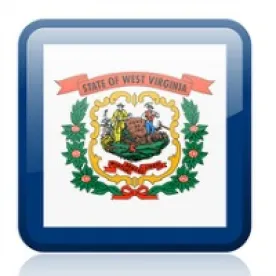Over the past 16 months, a quiet labor and employment law revolution has been underway in Virginia. In the first quarter of 2021, the Virginia General Assembly doubled down legislative initiatives, imposing several additional labor and employment changes that will present challenges for many employers across the Commonwealth. By way of example, consider the new Virginia Overtime Wage Act (VOWA), Va. Code § 40.1-29.2, the wage and hour implications of which significantly deviate from requirements in the Fair Labor Standards Act (FLSA).
Background on the VOWA
In addition to introducing a new method for calculating the regular rate of pay for salaried workers—effectively eliminating popular pay schemes such as the fluctuating workweek, extending the statute of limitations for bringing wage and hour claims in state court, providing automatic liquidated damages, and allowing for possible treble damages—the VOWA precluded certain Virginia employers from utilizing long-standing overtime exemptions for employees falling under §§ 213(a) and 213(b)(10)(A) of the FLSA. Among other issues, the VOWA’s inconsistent references to the FLSA prompted immediate questions and concerns over industry overtime exemptions.
Recent Amendment to the VOWA
Recent changes to the VOWA have restored some, but not all, of the overtime exemptions, called into question by the VOWA, including the often-used “automobile salesperson exemption,” as well as all exemptions enumerated in § 213(a) of the FLSA. Specifically, on August 10, 2021, Governor Ralph Northam signed a public appropriations bill, House Bill (HB) 7001, which included the following amendment to the VOWA:
That for the purposes of the Virginia Overtime Wage Act § 40.1-29.2 the terms “Wages” and “Pay” shall also mean overtime compensatory time in lieu of wages for overtime pay by public agencies as provided by the Fair Labor Standards Act, 29 U.S.C. § 207(o), and the term “Employee” shall not include an individual described in 29 U.S.C. § 203(e)(4). In addition to the provisions of subsection D of § 40.1-29.2 of the Code of Virginia, an employer may assert an exemption to the overtime requirements for employees who meet any of the exemptions set forth in 29 U.S.C. § 213(a). Employees covered under 29 U.S.C. § 213(b)(10)(A) shall be exempt from the overtime requirements set out in Code of Virginia § 40.1-29.2.
Key Takeaways
By expressly incorporating into the VOWA the exemptions defined in 29 U.S.C. § 213(a) and § 213(b)(10)(a), the amendment has clarified ambiguities in the original text of the statute and restored exemptions for employees in numerous industries, including the following:
-
certain salesmen, partsmen, and mechanics “primarily engaged in selling or servicing automobiles, trucks, or farm implements” (i.e., the automobile salesperson exemption);
-
certain computer employees;
-
employees of specified “amusement or recreational establishments”;
-
employees of specified “religious or non-profit educational conference center[s]”;
-
fishery employees;
-
certain agriculture employees;
-
employees of newspapers that have small circulations;
-
“switchboard operator[s] employed by … independently owned public telephone compan[ies]” of a certain size; and
-
seaman employed on non-American vessels.
In addition, the amendment has incorporated the availability of “compensatory time” for certain public sector employees (i.e., leave in lieu of overtime wages) and clarifies that public sector volunteers are not considered “employees” covered by the VOWA.
While this amendment to the VOWA provides much-needed clarity to certain Virginia employers, there are still numerous ambiguities in the VOWA that will continue to present challenges for employers.






 />i
/>i

